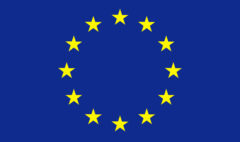European Central Bank: To Hike Rates for The First Time In 11 Years
June 10, 2022 2022-06-10 16:06European Central Bank: To Hike Rates for The First Time In 11 Years
European Central Bank: To Hike Rates for The First Time In 11 Years
EUROPE – The European Central Bank (ECB), the mother central bank of all 19 member countries of the European Union (EU), which adopted the Euro (€) as its currency has announced on Thursday, June 9, that it would implement an interest rate starting on July, a historic decision not seen in the last 11 years.
The unprecedented move marks the shift of the European Union’s monetary policy towards a more decisive tightening / contractionary measure to mitigate the mounting current pressure on the continent battled with the after-effect of the COVID-19 pandemic, global supply-chain issues, and the ongoing war in Ukraine among the most pressing reasons. In fact, the ECB is one of the last to adopt such monetary policy as it was relatively conservative and highly conscious of the possible adverse effects of an interest hike on the economy of its 19 member countries that use the Euro.
Europe on an Unprecedented Territory
The ECB will officially abandon its decade-long expansionary monetary policy of low-interest rates and start its interest rate hike by July of next month with a quarter-point increase and a possible more aggressive increase of half a percentage point by September. Moreover, the ECB stressed that it would not hesitate to implement “a larger increment that would be appropriate” to curb the rising inflation in Europe. Likewise, it warned that after the September rate hike, the hike moving forward would be “gradual but sustained.”
In a policy statement, the ECB stressed that “high inflation is a major challenge for all of us. [Therefore] the governing council will make sure that inflation returns to its 2% target over the medium term.”
At the same time, many analysts believe that the ECB is left with no choice as the Ukraine-Russian War has sent shockwaves across the continent, especially as the price of oil and natural gas has increased significantly over the past few months and the continent struggle to secure a deal for an adequate supply of alternative oil and natural gas to bring back the demand-supply equilibrium. As a result, commodity prices, as well as the cost of doing business, have significantly increased, leading to a more pronounced cost-push inflation. In May alone, the ECB reported consumer prices increased by a record 8.1% in May, a far cry from its target of only 2%, matching its inflation target rate.
According to ECB’s President Christine Lagarde, “Russia’s unjustified aggression towards Ukraine continues to weigh on the economy in Europe and beyond.” She added that the conflict is “disrupting trade, is leading to shortages of materials and is contributing to high energy and commodity prices.” The continent has long relied on Russian energy, as it was the most accessible and cost-efficient way to power Europe.
Inevitable Adverse Effect on Economic Growth
The European Central Bank has also announced that it is reducing its projected growth for this year to only 2.8%, down by almost 1% from its original forecast of 3.7% prior to Ukraine-Russia War. In addition, despite its planned sustained interest rate hikes, it still augmented its projected inflation rate to a total of 6.8% this year, an increase of 1.7% from its prior 5.1% outlook.
Lastly, Europe’s central bank conservatively forecasted that it will only hit its target of bringing down the inflation rate to around 2% by 2024, sending a clear message that the planned interest rate hike would likely last for one to two years at minimum.











